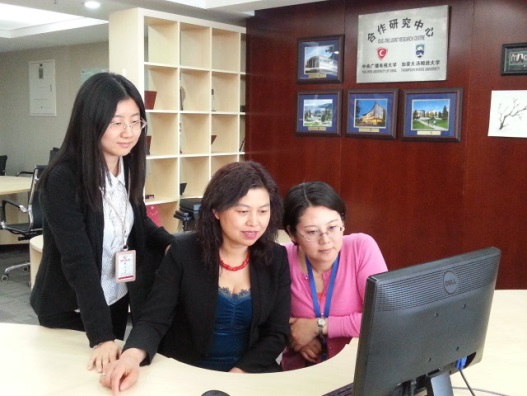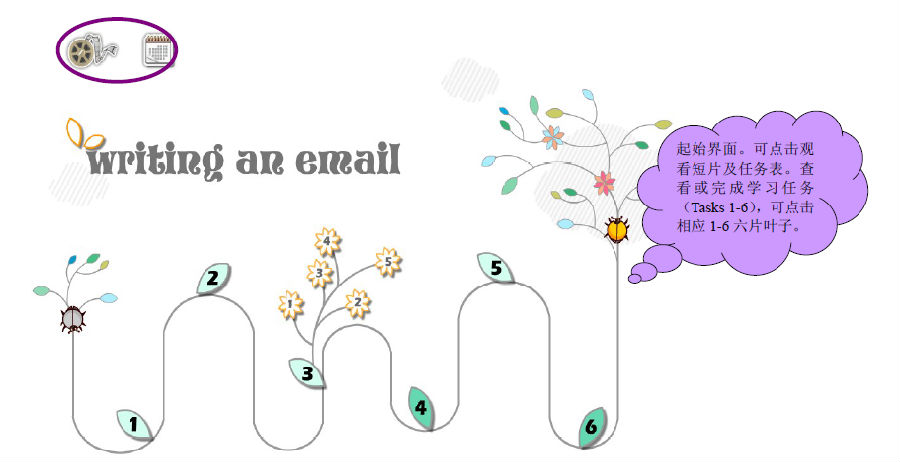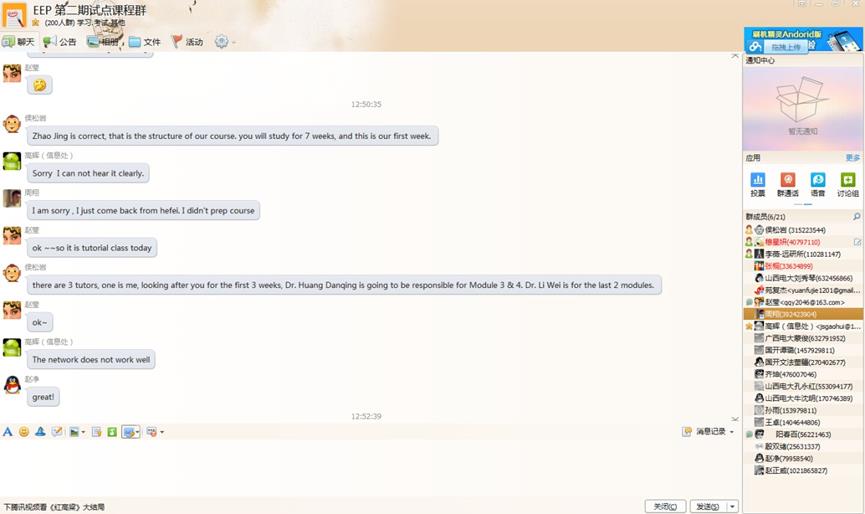 “English for E-Learning Practitioners” is one of the courses in the series “E-Learning Practitioners Training”. After the pilot run in 2013 and some course adjustments, the second training class was successfully held from 17 November 2014 to 22 January 2015, and was made up of 23 learners from eleven separate departments of the Open University of China (OUC), such as the Academic Affairs Department (Examination Centre), Shanxi RTVU, Guangxi RTVU, and the Open University of Japan. All of the students highly praised the contents of the course and considered the multi-media courseware to be refreshing. During the training, QQ group voice real-time interaction was integrated to enhance chances for learners to practice their oral English.
“English for E-Learning Practitioners” is one of the courses in the series “E-Learning Practitioners Training”. After the pilot run in 2013 and some course adjustments, the second training class was successfully held from 17 November 2014 to 22 January 2015, and was made up of 23 learners from eleven separate departments of the Open University of China (OUC), such as the Academic Affairs Department (Examination Centre), Shanxi RTVU, Guangxi RTVU, and the Open University of Japan. All of the students highly praised the contents of the course and considered the multi-media courseware to be refreshing. During the training, QQ group voice real-time interaction was integrated to enhance chances for learners to practice their oral English.

Hou Songyan, Huang Danqing, and Li Wei, the tutors of the second training class of “English for E-Learning Practitioners”
Screenshot of the multi-media courseware

Screenshot of QQ group text message and voice interaction
“English for E-Learning Practitioners” is a course on professional English developed independently by the OUC, which combines the work of several front-line backbone English teachers from the OUC and local RTVUs to provide teaching resources service and learner support. The course is targeted towards e-learning practitioners, including teachers, educational administrative staff, scientific research personnel, and technical staff. Through studying this subject, learners can master commonly used professional expressions about e-learning, read general academic works relating to e-learning, carry on simple written and oral communication with international peers on topics related to e-learning in their line of work, deliver academic reports at international meetings and participate in interactive exchanges, properly raise questions and give answers, and write normative academic papers. The subject is a 100% online curriculum with all teaching and learning activities completed online. The presentation forms include multi-media courseware, PPT, written materials, etc. The teaching contents are organized into modules, and there are a total of seven parts, which are divided into curriculum guidance and six topic modules. The learning period lasts for seven weeks, ten class hours every week, for a total of 70 class hours.
By Mu Xingyan from the OUC